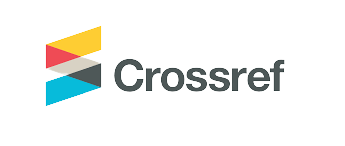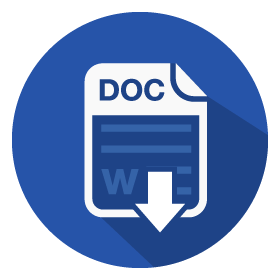The Role of Islamic Education in Sustainable Development and Ecology (SDGs)
Kata Kunci:
Islamic education, Sustainable Development, Ecology, Sdgs, Environmental Ethics, Eco-Pesantren, Green Education.Abstrak
This study explores the pivotal role of Islamic education in promoting sustainable development and ecological awareness in alignment with the Sustainable Development Goals (SDGs). Islamic teachings emphasize the principles of stewardship (khalifah fil-ardh), justice (adl), and balance (mizan), which resonate with contemporary sustainability concepts. By integrating these values into educational curricula, Islamic education can foster environmental ethics, responsible resource management, and social welfare. This paper highlights how Islamic educational institutions, including schools and universities, contribute to sustainability through curriculum design, green campus initiatives, and community engagement programs. Furthermore, the study examines the challenges and opportunities in embedding sustainability principles within Islamic pedagogy, emphasizing innovative approaches such as eco-pesantren, project-based learning, and digital platforms for environmental campaigns. The findings underscore that Islamic education not only supports moral and spiritual development but also plays a strategic role in shaping environmentally conscious generations who contribute to achieving global sustainability targets.
Referensi
Aisi, O. K., Susanto, R., & Isa, K. (2025). Bridging Gender Gaps In Education Through Islamic Values And Technology At Pptq Al-Hasan. Egalita : Jurnal Kesetaraan Dan Keadilan Gender, 20(1), 13–26. https://doi.org/https://doi.org/10.18860/egalita.v20i1.30589
Al-Mahali, J. M. ibn A., & Jalaluddin Abdur Rahman ibn Abi Bakr al-Suyuti. (2017). Tafsir al-Jalalain. Bojonegoroi, Jawa Timur: Murqomah Al-Ayat Al-Qur’aniyah.
Al-Maraghi, A. M. (1946). Tafsir Al-Maraghi. Beirut: Dar Ihya al-Turath al-Arabi.
Albirruni, K. A. (2024). The Role of Islamic Boarding School-Owned Enterprises (BUMPes) in Improving the Economy of Islamic Boarding Schools (Case Study at the Tri Bhakti Al-Qudwah Inclusive Islamic Boarding School, South Metro, Metro City). IAIN Metro.
Chaleta, E., Saraiva, M., Leal, F., Fialho, I., & Borralho, A. (2021). Higher education and sustainable development goals (Sdg)—potential contribution of the undergraduate courses of the school of social sciences of the university of Évora. Sustainability (Switzerland), 13(4), 1–10. https://doi.org/10.3390/su13041828
Creswell, J. W. (2022). Mixed Methods Research and Evaluation. Thousand Oaks: CA: SAGE Publications.
Faruqi, A. R. H. Al, Ma’afi, R. H., & Munandar, M. A. (2023). Kontribusi Pesantren dalam Penguatan Visi Pendidikan Bangsa Achmad. INTEGRATIA: Journal of Education, Human Development, and Community Engagement, 1(2), 135–142. Retrieved from https://ojisnu.isnuponorogo.org/index.php/integratia/article/view/41/18
Friedman, J., York, H., Graetz, N., Woyczynski, L., Whisnant, J., Hay, S. I., & Gakidou, E. (2020). Measuring and forecasting progress towards the education-related SDG targets. Nature, 580(7805), 636–639. https://doi.org/10.1038/s41586-020-2198-8
Herdiyanti, Y., Janah, M., & Susanto, R. (2025). Building a Golden Generation : Synergy of Education , Technology , and Qur ’ anic Values. JISEI: Journal of Islamic Studies and Educational Innovation, 01(01), 36–48.
Huberman, A. M., & Jhonny, S. (2014). Qualitative Data Analysis a Methods Sourcebook. America: Arizona State University.
Izzati, N. R., Arfa, M. F. A., Pebriansyah, T. P., Na’im, A., & Asnawi, M. N. (2024). Maqasid al-Syariah Theory By Imam al-Syatibi. Anayasa: Journal of Legal Studies, 2(1), 93–100. https://doi.org/https://doi.org/10.61397/ays.v2i1.191
Khan, P. A., Johl, S. K., Akhtar, S., Asif, M., Salameh, A. A., & Kanesan, T. (2022). Open Innovation of Institutional Investors and Higher Education System in Creating Open Approach for SDG-4 Quality Education: A Conceptual Review. Journal of Open Innovation: Technology, Market, and Complexity, 8(1). https://doi.org/10.3390/joitmc8010049
Kioupi, V., & Voulvoulis, N. (2020). Sustainable Development Goals (SDGs): Assessing the Contribution of Higher Education Programmes Vasiliki. Sustainability (Switzerland), 12(17).
Kopnina, H. (2020). Education for sustainable development goals (ESDG): What is wrong with esdgs, and what can we do better? Education Sciences, 10(10), 1–14. https://doi.org/10.3390/educsci10100261
Kushnir, I., & Nunes, A. (2022). Education and the UN Development Goals Projects (MDGs and SDGs): Definitions, Links, Operationalisations. Journal of Research in International Education, 21(1), 3–21. https://doi.org/10.1177/14752409221088942
Mahmad Robbi, A. A., & Mahmud, M. W. (2020). The Objective of Fairness (al-Adl) in the Matrimonial Property Conflict in Malaysia. Journal of Islam in Asia, 17(Special Issue Family Fiqh Issues in Malaysia), 291–320.
Maryanti, R., Rahayu, N. I., Muktiarni, M., Al Husaeni, D. F., Hufad, A., Sunardi, S., & Nandiyanto, A. B. D. (2022). Sustainable Development Goals (Sdgs) in Science Education: Definition, Literature Review, and Bibliometric Analysis. Journal of Engineering Science and Technology, 17, 161–181.
Mujahid, I. (2021). Islamic orthodoxy-based character education: creating moderate Muslim in a modern pesantren in Indonesia. Indonesian Journal of Islam and Muslim Societies, 11(2), 185–212. https://doi.org/10.18326/ijims.v11i2.185-212
Mustofa, B. (2016). Al-Ibris. kudus, Jawa Tengah: Maktabah Menara Kudus.
Qomarudin, F., & Zuhri, A. S. (2025). Innovation of Story-Based Moral Learning Modules in Strengthening Student Character. JISEI: Journal of Islamic Studies and Educational Innovation, 01(01).
Shihab, M. Q. (2002). Tafsir Al-Misbah: Pesan, Kesan, dan Keserasian Al-Qur’an. Jakarta: Lentera Hati.
Sugiyono. (2010). Metode Penelitian Pendidikan. Bandung: CV Alfabeta.
Susanto, R., & Syahrudin, S. (2024). Social Transformation Through Education: Building a Caring and Empowered Generation. Ngabari : Jurnal Studi Islam Dan Sosial, 17(2), 37–48.
Susanto, R., Yahuda, R. D., Basuki, & Kadir, abdul. (2023). Implications of Developing Fayd Al-Barakat Book on Learning Qiraat sab’ah in the Digital Era. Jurnal Pendidikan Al-Ishlah, 15(4). https://doi.org/https://doi.org/10.35445/alishlah.v15i4.3009
Syafiqurrohman, M. (2020). Implementasi Pendidikan Akhlak Integratif-Inklusif. QALAMUNA: Jurnal Pendidikan, Sosial, Dan Agama, 12(1), 37–48. https://doi.org/https://doi.org/10.37680/qalamuna.v12i01.240
Yahuda, R. D., Susanto, R., Widodo, W., & Kolis, N. (2024). Totally Muslim Truly Intellectual-Based Holistic Education in Postgraduate Programs. QALAMUNA: Jurnal Pendidikan, Sosial, Dan Agama, 16(2), 1399–1410. https://doi.org/10.37680/qalamuna.v16i2.4104
Unduhan
Diterbitkan
Cara Mengutip
Terbitan
Bagian
Lisensi
Hak Cipta (c) 2025 Journal of Islamic Studies and Educational Innovation

Artikel ini berlisensiCreative Commons Attribution-ShareAlike 4.0 International License.







